|
-Meredith Manley, director I’m excited to share this blog with you about my first love, music therapy. Although a majority of my work is now teaching, I am still a practicing music therapist: I have one private client and group sessions at two different retirement communities in Plano. In my 7 years of being a board certified therapist, the one question I’ve been asked countless times is, “What exactly is music therapy?” The American Music Therapy Association (AMTA) defines it as “an established health profession in which music is used within a therapeutic relationship to address physical, emotional, cognitive, and social needs of individuals.” A music therapist uses music as a tool to help a client reach goals that are non-musical in nature (reduce pain, improve motor function, promote socialization, just to name a few). Goals are very personal to each client, and no two clients are exactly the same. It is an evidence-based practice and a music therapist must be board certified for it to be called music therapy. Working with a visually impaired client in Jamaica with the Jamaica Field Service Project How does someone become a music therapist? First, you must earn either a bachelor’s or equivalency degree in music therapy from an accredited university (there are over 70 colleges in the U.S that offer this degree). Graduate degrees (masters and doctorate) are options as well, but least an undergraduate degree is required. After the university coursework is completed, its on to the internship, which usually lasts about 6 months (we’re talking 1200 clinical hours!) After the internship is completed, the candidate is eligible to sit for the national board certification exam. Once you pass the exam, you may now call yourself a music therapist. What an exciting day it was to finally sign my name with the credentials MT-BC! (Music Therapist Board Certified) What kinds of people do music therapists work with? You can find music therapists in so many different settings, including schools, hospitals, rehab facilities, retirement communities, and private practice. With each population you work with, you learn how to use music in different ways and what interventions work best. Throughout my practicum at SMU and internship in San Diego, I worked with SO many different types of clients, and eventually I realized I wanted to focus on the senior population. After I became board certified, my first official music therapy job was with a hospice company in Chicago, and I continued with different hospice agencies for a couple of years before I decided to open a private practice. Now, I primarily work with clients who have memory impairment and/or Alzheimer’s/dementia. Internship Days: Using songwriting for self-expression with clients with Traumatic Brain Injury What have I learned as a music therapist? Music is POWERFUL. One of the reasons why I love working with individuals with memory impairment is because I occasionally see some miraculous responses that never cease to amaze me. Songs from childhood and early 20’s are usually the ones that elicit the best response, as they are well ingrained in the person’s long-term memory. It’s not uncommon for me to work with people who are nonverbal, yet they can sing every word to a song that they have a strong connection with (it’s finding that song that is challenging!) Music is so strongly tied to memory and emotion that even as the brain deteriorates from disease, even if someone can no longer speak or walk, music stays. I could probably write another blog just about the amazing things I’ve seen! Luckily, music therapy is gaining more awareness around the world thanks to news stories and social media, and it really is an exciting time to be a music therapist!
For more information about music therapy, please visit the AMTA website at www.musictherapy.org. If you know someone who might benefit from music therapy, please contact me.
0 Comments
-Eliana Yi I was able to reach my first good octave when I was sixteen years old. My piano teacher took a photo and we celebrated. Finally, I could play something other than Mozart sonatas and Bach inventions! Time for Chopin! But the Chopin came at the cost of comfort. As my repertoire became more demanding, the physical limitations of my small hands became an issue. I remember spending hours with my hands splayed out as far as they could go which built a lot of tension and strain on my wrist, muscles, tendons and even shoulder and back. I injured myself during my senior year of high school and was unable to play piano for a few weeks (and this was right before my audition into college!). The most frustrating thing: no matter how much I practiced, my octaves sounded stiff, inhibiting my musicality and what I actually intended to do with the music. I was able to reach my first good tenth when I was nineteen. This was not because in a three-year times-span, my hand grew three inches. This was because the keyboard got smaller. I’m talking about this: I heard about these keyboards through a pianist in Austin who had heard it himself from a magazine. Dr. Carol Leone, my private instructor, is one of the leading researchers in this notion of an ergonomic keyboard. These keyboards were developed in the 1990s by David Steinbuhler. He has created three different sizes. A small (5.5”), a medium (6.0”) and a large (6.5”). The number indicate how many inches one has to reach to play an octave. Guess which size is the standard one that all pianos are manufactured to? The large. The three different keyboard sizes compared to each other. Research has shown that the standardized keyboard size that we have set for all pianos are proven too large for most of the population. This is especially a problem with minorities such as Asians or Hispanics that tend to have a smaller stature and women across all races who have smaller hands than males. Even Chopin himself had played on a keyboard with narrower keys. The reason why I am sharing this with you is that this keyboard action is available for purchase. My performance has dramatically improved now that the keys are literally under my fingers and that comes along with self-confidence, poise and more focus on creating good sound. A lot of your children and perhaps you yourself have trouble reaching stretchy intervals and changing the keyboard size could prevent injury and frustration. The best thing is that the keyboard actions are interchangeable in grand pianos. It takes a screwdriver and five minutes to slip one size out and put a new one in: Ergonomic keyboards are also made for up-rights as well. There’s a lot more information that I will link below, but I will address one frequently asked question: if me/my child plays on a smaller keyboard will that mess them up if they try to play on a regular size? I was worried about that too when I first came to SMU to participate in this research study. But I realized that the human mind is extremely flexible. The brain can adjust to anything. Recently, I performed in my junior recital on both the small size (5.5) and the large size (6.5) back-to-back. The keyboard size change was not an issue to me. During my lessons, I will switch from one keyboard to another and it feels kind of like changing gears on a car: an automatic switch in my brain that immediately adjusts to whatever keyboard I’m playing on. Last year, I took my Liszt etude (which had been learned on the 5.5”) to a festival which only had a 6.5”. It took me only a week to relearn the piece on the new keyboard size. I highly recommend the alternate sized keyboards to any student that is struggling with those large chunky keys. Why risk the arthritis? My hand on a smaller keyboard. (For reference, my hand is about the size of an 8-year-old child)
More information: http://www.paskpiano.org/vision-for-the-future.html https://www.dallasnews.com/arts/classical-music/2017/12/26/standard-pianos-big-problem-musicians-small-hands-smus-trying-change |
Archives
July 2024
Categories
All
|
|
|
MUSIC SO SIMPLE
|
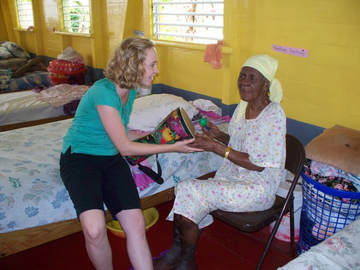
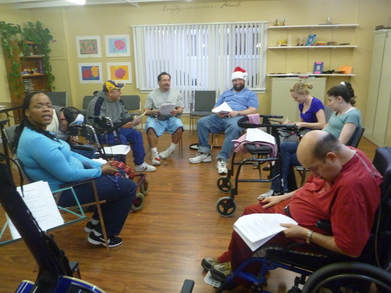
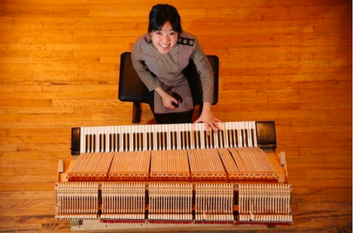
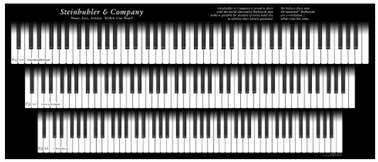
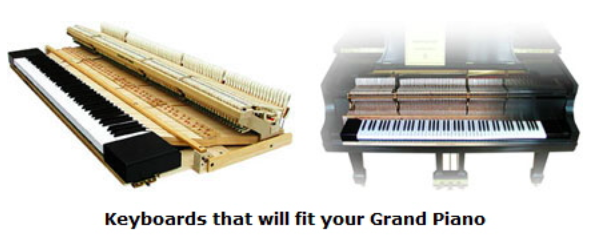
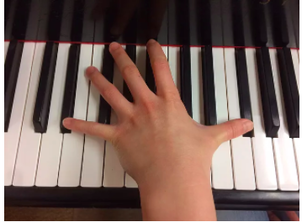
 RSS Feed
RSS Feed